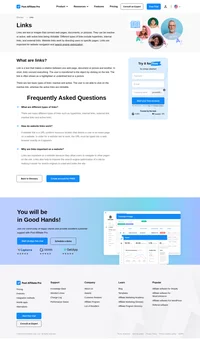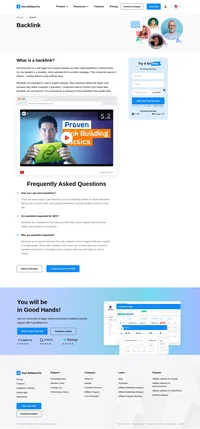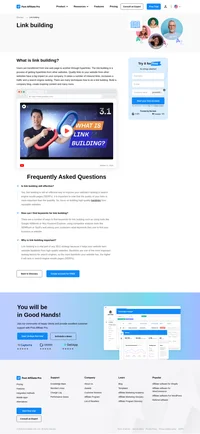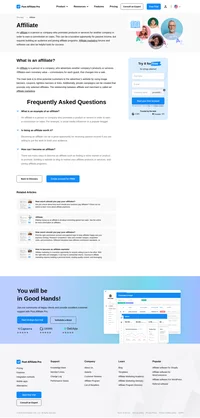What is a link farm?
A link farm is a network of websites created primarily to increase the number of inbound links to a particular site, boosting its search engine rankings artificially. These sites often contain unrelated or low-quality content and are characterized by excessive outbound links. Link farms are considered a form of spamdexing, which involves manipulating search engine algorithms to gain undeserved ranking advantages. This manipulative practice has been largely condemned and penalized by search engines due to its deceitful nature.
How Link Farms Operate
Link farms typically consist of a group of websites that hyperlink to each other or to a central site within the network. The main objective is to create numerous backlinks that search engines interpret as indicators of a site’s popularity and relevance. Often, these backlinks are generated using automated programs or services, which further diminishes their value and reliability in the eyes of search engines. This tactic was more effective in the early days of SEO when search engines like Inktomi and AltaVista relied heavily on link quantity. However, with the evolution of algorithms, particularly Google’s, the strategy has been largely nullified.

Impact on Search Engine Rankings
While link farms were once a common strategy to improve search engine rankings, they are now heavily penalized by search engines like Google. Google’s algorithm updates, specifically Penguin and Panda, have targeted these manipulative practices by prioritizing the quality and relevance of links over sheer quantity. Sites associated with link farms can suffer severe penalties, including being de-indexed from search results, which dramatically reduces their visibility and traffic. Google’s ongoing updates ensure that such tactics are swiftly identified and penalized, emphasizing the need for ethical SEO practices.
Identifying Link Farms
Detecting link farms involves scrutinizing certain characteristics:
- Low-Quality Content: Content is typically shallow and irrelevant, serving only to host links.
- Excessive Outbound Links: Pages are filled with numerous links pointing to various unrelated websites.
- Poor Google PageRank: The sites often have a low PageRank, indicating low trust and authority.
- Random Domain Names: The domain names may consist of nonsensical strings of letters and numbers.
- Lack of Legitimate Information: Absence of credible “About” or “Author” information.
- Generic Anchor Texts: Use of non-specific anchor texts like “click here” or “read more.”
These elements collectively indicate a lack of content authenticity and reliability, often signaling a link farm’s presence.
Consequences of Using Link Farms
Engaging with link farms can have detrimental effects on search engine optimization (SEO) efforts:
- Search Engine Penalties: Major search engines may impose penalties that lower a site’s ranking or remove it from search results entirely.
- Reputation Damage: Association with manipulative SEO practices can harm a site’s credibility.
- Unstable Backlinks: Links from link farms may disappear if the network is shut down or penalized, resulting in a sudden loss of backlinks.
The risks associated with link farms far outweigh any short-term gains, making sustainable SEO practices crucial.
Alternatives to Link Farming
Instead of resorting to link farms, websites can adopt ethical and effective link-building strategies:
- Quality Content Creation: Develop high-quality, informative content that naturally attracts backlinks from reputable sites.
- Guest Posting: Write guest posts for established blogs in your niche to earn legitimate backlinks.
- Engage in Online Communities: Build relationships with other website owners and engage in niche-specific forums and networks.
- Directory Submissions: Submit your site to reputable directories, which can enhance visibility without risking penalties.
These strategies emphasize the importance of organic growth and relationship building over manipulative practices.
Link Farming in Affiliate Marketing
In the realm of affiliate marketing, link farms may be used to falsely inflate the perceived popularity of affiliate links, potentially misleading users and damaging brand trust. Affiliate marketers should focus on building genuine relationships and leveraging high-quality, relevant content to attract organic backlinks. This approach not only enhances trust but also ensures compliance with search engine guidelines.
Google’s Stance on Link Farms
Google’s algorithm updates, such as Penguin and Panda, have targeted manipulative link-building practices, including link farms. These updates emphasize backlink quality and relevance, discouraging the use of link farms. Consequently, websites involved in link farming face the risk of significant penalties, making it essential for marketers to adhere to Google’s Webmaster Guidelines.
Frequently Asked Questions
Why does Google not like link farming?
There are many reasons why Google does not like link farming such as link farms providing poor user experience, typically consisting of low-quality websites, and the fact that they are created to manipulate search engine rankings.
Is link farming worth the risk?
Link farming is typically not worth it since it can result in search engine penalties, which negatively impact a website's traffic and visibility
What to do instead of link farming?
Link building is a better alternative to link farming. Creating high-quality content will usually get you links from reputable websites and increase your ranking with search engines.
Explore Post Affiliate Pro's comprehensive Affiliate Marketing Glossary to enhance your industry knowledge with easy-to-understand definitions of essential terms. Perfect for marketers seeking to understand the fundamentals and advanced concepts, this glossary helps you master the language of affiliate marketing. Visit now to boost your expertise!
Discover the power of link building with Post Affiliate Pro! Learn how acquiring quality backlinks can boost your website's traffic and search ranking. Explore techniques, from creating a compelling blog to building strong relationships, to enhance your SEO strategy. Visit us to elevate your digital presence today!
Discover the role of an affiliate in marketing—earn commissions by promoting products through banners, links, and campaigns. Learn how affiliates drive sales and explore effective marketing strategies. Join the world of affiliate marketing with Post Affiliate Pro for user-friendly tools and exceptional support.










